In today’s fast-paced world, healthcare professionals are constantly striving to provide the best care to their patients while also managing the complexities of running a clinic or treatment center. One major challenge that many care providers face is healthcare fragmentation, which refers to the disjointedness of patient data and services across different systems and providers. This can lead to delays in care, miscommunication between healthcare providers, and overall inefficiency in the healthcare system. Understanding the impact of the healthcare industry and how to address it is crucial for providers to provide high-quality, coordinated care to their patients.
In this blog, we will discuss how an Electronic Health Record (EHR) system can help to reduce healthcare fragmentation and improve patient outcomes. Also, we will highlight how AZZLY®️, an all-in-one addiction treatment EHR software, can benefit your clinic and support your patients on their journey to better health.
What is Healthcare Fragmentation?
Healthcare fragmentation can be described as a lack of coordination and integration between different aspects of the health system. This can include data, services, providers, and facilities. For example, a patient may visit multiple providers or specialists for different health concerns, but their medical records and information are not easily accessible to each healthcare provider. This can lead to duplicate tests, conflicting treatment plans, and delays in care. Fragmentation also refers to the separation of physical health and behavioral health services, which can result in a lack of care coordination between these essential aspects of patient care.
The Impact of Fragmented Healthcare
Fragmented care can have a significant impact on patient outcomes and the overall efficiency of the healthcare system. Some of the consequences of fragmentation include:
- Duplicate Testing and Procedures: When care providers do not have access to a patient’s complete medical history, they may order unnecessary tests or procedures that have already been performed by another healthcare provider. This not only wastes time and resources but can also put patient safety at risk for additional complications.
- Miscommunication Between Providers: Without a central system to share patient information, miscommunication and errors can occur. This can lead to delays in care, incorrect diagnoses, and even adverse events.
- Patient Dissatisfaction: When patients are required to repeatedly provide the same information or undergo duplicate procedures, it can lead to frustration and dissatisfaction with their healthcare experience.
- Increased Costs: Fragmentation can also result in increased healthcare costs for both patients and providers. Duplicate procedures, extended hospital stays, and unnecessary tests all contribute to the rising cost of healthcare.
- Poor Health Outcomes: Ultimately, healthcare fragmentation can lead to subpar health outcomes for patients. Without access to their complete medical history and coordinated primary care, patients may experience delayed or inadequate treatment plans.
- Burden on Providers: Fragmented healthcare also places a burden on providers to manually gather and coordinate patient information. This not only takes valuable time away from patient care but can also increase the likelihood of medical error.
How Can an EHR Help to Reduce Healthcare Fragmentation?
An Electronic Health Record (EHR) system is a digital platform that allows for the secure storage, sharing, and management of patient health information. EHRs have the potential to significantly reduce healthcare fragmentation by providing a centralized system to access and share patient data. Some of the ways an EHR implementation can help to reduce fragmentation include:
1. Comprehensive Patient Records
EHRs allow providers to have access to a patient’s complete medical history, including previous diagnoses, test results, and treatment plans. This eliminates the need for duplicate testing and procedures and helps to ensure that all providers involved in a patient’s care are working from the same information. Additionally, with the integration of physical and behavioral health records, EHRs promote a more holistic approach to patient care.
2. Improved Communication
With an EHR system, providers can easily share patient health information and communicate with each other to coordinate care. This reduces the risk of miscommunication and errors, leading to more efficient and effective treatment. Also, with the integration of behavioral health services into EHRs, providers can better coordinate care between physical and mental health needs.
3. Cost Savings
By reducing duplicate procedures and tests, EHRs can help to lower the overall cost of healthcare and reduce the financial burden on patients. Additionally, with better coordination and communication between providers, there is less chance of errors that could result in costly adverse events. And with a more comprehensive approach to patient care, there is potential to prevent future health complications and reduce long-term healthcare costs.
4. Time Savings
EHRs also save providers time by eliminating the need to manually gather and coordinate patient information from multiple sources. This allows them to spend more time focused on direct patient care and less time on administrative tasks. Plus, with a more coordinated approach to primary care, there is less likelihood of delays or interruptions in treatment, ultimately saving time for both providers and patients.
5. Enhanced Patient Experience
With access to a comprehensive medical record and more coordinated care, patients can feel more involved and informed about their healthcare journey. This can lead to increased patient satisfaction with their overall experience and better health outcomes. It also allows for a more patient-centered approach to care, as providers can tailor treatment plans to each individual’s unique needs.
Partner with AZZLY® Rize™️ to Combat Healthcare Fragmentation
At AZZLY Rize™️, we recognize the challenges that healthcare providers face when it comes to managing patient information and coordinating care for individuals with behavioral health and addiction treatment needs. Fragmentation within the healthcare setting can result in a lack of communication between different providers, leading to gaps in value based care and potentially negative outcomes for patients.
That’s why we developed AZZLY Rize™ – an all-in-one Electronic Health Records (EHR), Patient Management (PM), and Revenue Cycle Management (RCM) platform designed specifically for behavioral health and addiction treatment clinics, facilities, and organizations. Our goal is to provide a solution that streamlines processes, improves communication, and ultimately reduces healthcare fragmentation.
How Does AZZLY Rize™ Combat Fragmentation?
Cloud-Based Modern Platform
AZZLY Rize™ is hosted, and all documents are stored in Microsoft Azure Private Cloud Network, ensuring secure access to patient information from anywhere. As a HIPAA-compliant software as a service, our platform allows for easy scalability to accommodate single or multiple locations in one state or across the country.
User-Friendly Design
Our platform boasts roles-based permissions to ensure that team members only have access to what they need to see and interact with. This restricts PHI from staff members that should not have access to clinical data, yet streamlines communication between team members and supervisory staff, making it easier to coordinate care for patients.
One Stop Shopping
With AZZLY Rize™, you no longer have to juggle multiple software systems to manage patient information, clinical documentation, and revenue cycles. Our platform is designed to meet the specific needs of your organization’s license(s), program(s), and level(s) of care. And if additional features or functions are needed, we can easily add them to your plan.
Dedicated Training & Support
We understand that transitioning to a new EHR system can be daunting. That’s why we offer dedicated training and support to ensure a smooth transition for your team. Our 5-star rated US service and support team, along with a Project Coordinator and Implementation Specialist, will guide you every step of the way to make sure your clinic experiences minimal disruption during the transition.
Grow Your Clinic with AZZLY Rize™
At AZZLY Rize™, we are more than just a healthcare technology provider. We are committed to the success of our partner clinician and healthcare organizations. That’s why we offer personalized plans to fit your specific needs and budget. We want to see you succeed in providing the best possible care to your patients.
Make a Difference with AZZLY Rize™
By partnering with us, you can make a real difference in reducing healthcare fragmentation for individuals with behavioral health and addiction treatment needs. Our platform is designed to streamline processes, improve communication, and ultimately improve patient outcomes.
To learn more about the top EHR features for behavioral and mental health practices, you can check out our blog post so that you can make an informed decision when choosing an EHR for your organization.
Ready to Combat Fragmentation with AZZLY Rize™?
Now that you know how EHRs can combat healthcare fragmentation and how AZZLY Rize™ can help your clinic achieve this, it’s time to take action. Contact us today at hello@azzly.com or 1 (888) 400-3201 to learn more and schedule a consultation with one of our Solution Consultants to see how we can benefit your clinic and improve patient engagement. Let’s work together to empower and support your patients on their journey towards better health!




